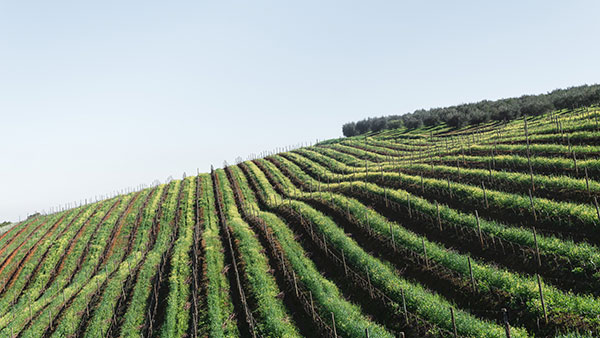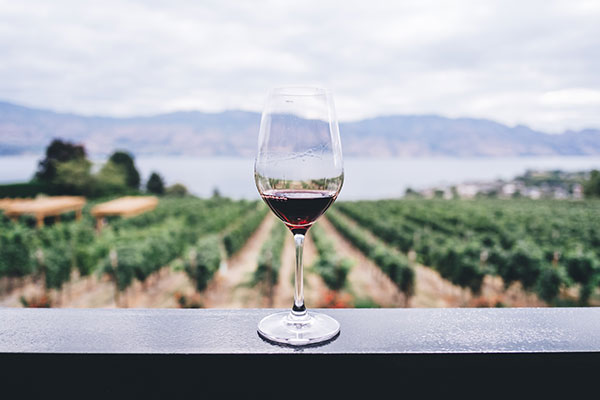News
The sustainable wine cellar
Wednesday, August 24th, 2022
Brought to you by Woolworths
According to the WWF, climate change will have tangible effects on biodiversity and food security in Africa and the alarming effects of this persistent problem will be felt from farm to table, and in your wine glass. “Woolworths recognises that over 95% of South African wine is produced within the Cape Floral Kingdom, the smallest and richest in the world,” says Kobus Pienaar, technical manager for food security at Woolworths.
The Cape Floral Kingdom – famous for fynbos – is home to 7,300 plant species. This 37,000 square kilometre area is the domain of 68% of plants that occur nowhere else on Earth. In parallel, the Succulent Karoo is home to 4,000 plant species – 2,500 of which are endemic.
These biodiversity hotspots experienced the threat of dwindling winter rain as a result of climate change.
In the 2000s, the vineyard footprint began to expand into conservation habitats of concern. Since 2004, the WWF has partnered with the wine industry in various initiatives to take into consideration water and biodiversity.
Conservation remains an ongoing concern
“Woolworths’ Farming for the Future programme, launched in 2009, is a scientific, data-based approach to farming that aims to manage a farm as part of a wider ecosystem. It’s premised on the basis that food systems have been affected by the impact of climate change, soil degradation, worsening water quality and availability, biodiversity loss, and astronomical increases in the price of direct farming inputs,” Kobus expands.
“Woolworths’ Farming for the Future programme aims to address these challenges and enhance the resilience of the supply chain. It consists of various modules, which include viticulture and winemaking,” Kobus explains.

Kobus says: “The 400- to 500-million-year-old soils and microclimates represent a treasure trove of grape-growing and winemaking possibilities. It is therefore important that Woolworths works with suppliers to protect this unique biome. We also apply the same philosophy in other areas where we source wine.”
Kobus explains that data points are measured at farm and wine cellar level, and include data related to soil health, water use efficiency, crop protection, carbon footprint, irrigation efficiency, waste and wastewater management.
Sustainability matters
Moses Magwaza, top sommelier and 2022 Eat Out Woolworths Restaurant Awards judge, holds a Cape Wine Academy Certificate and Diploma, WSET level 2 and SASA Junior Sommelier Level 1. He was awarded the Eat Out Wine Service Award for two years running in 2017 and 2018. During his tenure at Restaurant Mosaic at the Orient in Pretoria, Moses was part of the team that built a 5,500-strong wine cellar of local and international wines.
Moses says: “Sustainability matters because it protects our future quality of our life. It matters not only for the environment, but also for the people who live in it. We are part of the natural world and depend on natural resources to sustain our businesses and activities. We must strive to meet today’s needs without compromising the needs of future generations.”
Woolworths is passionate about sustainability, from its trucks to its distribution centres, and suppliers, partners and farmers.
Closing the circle
The Good Business Journey represents Woolworths’ commitment to caring for the environment, people and communities. Woolworths’ vision is to become one of the world’s most responsible retailers by placing sustainability at the core of the business. The Good Business Journey intends to make the world a better place for future generations. Farming for the Future is one of the many parts of this journey.
There are 33 wineries and 46 farms that are currently part of Woolworths’ Farming for the Future Programme.

Kobus says: “The programme’s aim is to improve a farm’s resilience, yield and profitability while enhancing its ecosystem’s capacity over time.”
Moses says that beyond organic and biodynamic wines, consumers can work towards building sustainable wine collections by doing research and talking to winemakers.
The sustainable cycle goes beyond the farm: Moses suggests recycling empty wine bottles and even sharing children’s clothing with families in unfortunate circumstances.
“Since 2019, Woolworths has collaborated with Spier, one of Woolworths’ premium wine suppliers, and the Sustainability Institute on an innovative, experimental pilot project at the Living Soils Community Learning Farm at Spier to showcase the value of ecologically regenerative food production to a broad audience,” Kobus says.
This three-year project is supported by funding of R4.4 million from Woolworths, as well as three hectares of land and farming equipment from Spier and the Sustainability Institute in Stellenbosch.
“The project aims to provide a viable model of community-based food security and the sustainable development of local livelihoods that can be replicated throughout the country,” Kobus explains.
Woolworths relays that an important goal of the farm is the provision of training and learning that empowers emerging young farmers with the skills to tackle food insecurity and youth unemployment.
Moses Magwaza recommends three organic wines
Here are three of Moses’s favourite organic wines to try:
1. Reyneke Chenin Blanc 2021
2. Laibach The Ladybird Red Organic Wine 2012
3. Botanica wines Big Flower Merlot 2016
Hungry for more? Join more than 30 000 other Eat Out fans who get the scoop on the latest new restaurant openings, reviews and more – straight to their mailboxes every week.












